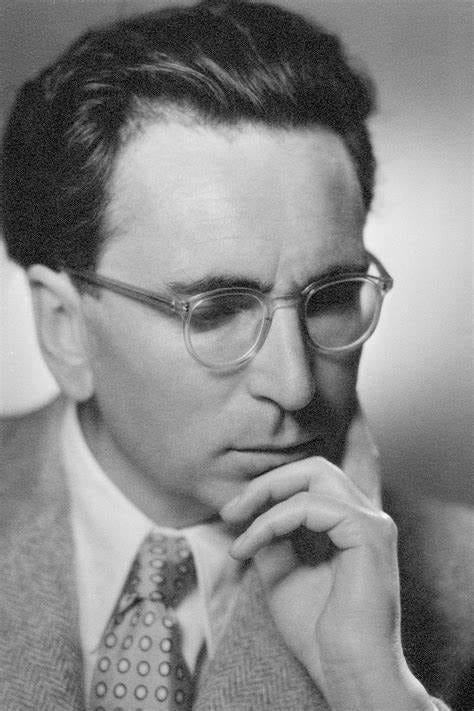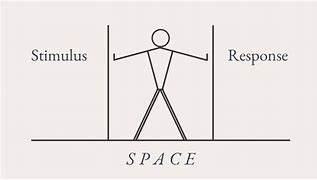"Between Stimulus and Response: Viktor Frankl’s Path to Growth and Freedom”
Views & Reviews: essays and book reviews
"Between stimulus and response, there is a space. In that space is our power to choose our response. In our response lies our growth and our freedom" – Viktor Frankl (1905-1997)
I have been deeply influenced by Viktor Frankl. His famous quote about the “space” between stimulus and response expresses a profound understanding of human freedom and resilience. This insight is not just an abstract philosophical idea but one deeply rooted in Frankl’s personal experiences and the broader context of his life’s work. It also has helped me in many areas of my life.
To fully appreciate the significance of Frankl’s statement, it is essential to understand his background, the development of his ideas, and the practical applications of his philosophy in everyday life.
Frankl's Background and Development of Logotherapy
Viktor Frankl was born in 1905 in Vienna, Austria, into a Jewish family. He studied medicine, specializing in neurology and psychiatry, with a particular focus on depression and suicide. Frankl was heavily influenced by the works of Sigmund Freud and Alfred Adler, but he eventually developed his own distinct approach to psychotherapy, which he called “logotherapy.” Unlike Freud’s emphasis on the will to pleasure or Adler’s focus on the will to power, Frankl believed that the primary drive in human beings is the will to meaning.
The most significant and transformative period of Frankl’s life came during World War II when he was imprisoned in Nazi concentration camps, including Auschwitz. The horrors and unimaginable suffering he witnessed and endured during this time profoundly shaped his thinking. Despite the extreme conditions, Frankl observed that even in the face of brutal dehumanization, some individuals managed to maintain a sense of purpose and inner freedom. This ability to find meaning, even in the most desperate circumstances, became the cornerstone of his philosophy.
The Space Between Stimulus and Response
Frankl’s quote about the space between stimulus and response is one of the central tenets of logotherapy. This "space" represents a critical moment where individuals have the free will and opportunity to choose their response to any given situation, no matter how challenging or painful. The “space” where a person can choose how to respond may be small, even a few seconds or less. This choice made in this “space” between stimulus and response is what gives humans their freedom and dignity. According to Frankl, it is not the external circumstances that define us but how we choose to respond to them.
In the concentration camps, Frankl saw how this space allowed some individuals to exercise their free will, even when everything else was taken from them. Those who could exercise their free will to find meaning in their suffering—whether through a spiritual belief, a commitment to loved ones, or a desire to leave a legacy—were more likely to survive and maintain their humanity. Frankl’s own survival was, in part, due to his choosing to endure.
Practical Applications of Frankl’s Philosophy
Frankl’s philosophy is not only relevant in extreme situations like those he experienced but also in the everyday challenges we all face. The principle of choice between stimulus and response can be applied in various aspects of daily life, helping individuals navigate stress, conflict, and adversity with greater resilience and purpose. Here are some applications of Frankl’s philosophy.
Managing Stress in Daily Life: One common application of Frankl’s idea is in dealing with everyday stress, such as being stuck in traffic. The immediate stimulus—a long line of cars, a slow commute—might trigger frustration or anger. However, by recognizing the space between this stimulus and your response, you have the power to choose a different reaction. Instead of allowing anger to take over, you might decide to use this time productively or reflectively, such as taking slow and deep breaths, practicing mindfulness, or simply enjoying a moment of quiet. This conscious choice reduces stress and turns a potentially negative experience into a neutral or even positive one.
One coaching client told me that recently that another motorist cut him off. Instead of acting with anger as he usually does, he chose to relax and breathe. His wife, a passenger, was shocked with his uncharacteristic response and asked why he reacted calmly. My client answered that between the stimulus and his response there was a space in which he chose to respond calmly! This is a splendid example of the application of Frankl’s philosophy.
Responding to Criticism: Another area where Frankl’s concept can be invaluable is in handling criticism. When someone offers negative feedback, the natural response might be to feel defensive or hurt. Yet, by pausing and considering your response in the “space,” you have the opportunity to view the criticism as constructive rather than personal. You can choose to ask questions, seek to understand the other person’s perspective, and use the feedback to improve yourself. This approach not only helps in personal growth but also enhances relationships by fostering open communication and mutual respect.
Enhancing Relationships: Frankl’s ideas are also universally applicable in personal relationships, where emotions can often run high. For example, during an argument with a loved one, the stimulus might be a harsh word or a misunderstanding. Instead of reacting impulsively, taking a moment to recognize the space between stimulus and response allows you to choose a more thoughtful reaction. You might decide to listen more carefully, express your feelings calmly, or seek to understand the other person’s point of view. This mindful approach can de-escalate conflicts and lead to more meaningful and positive interactions, strengthening the bond between individuals. I frequently remember the availability of Frankl’s “space” in my relationships with family, friends, and even strangers I meet.
Battling Addictions: Viktor Frankl's statement about the space between stimulus and response is particularly relevant when addressing addictions. Addictions are often characterized by a compulsive reaction to specific stimuli, such as stress, boredom, or emotional pain, which leads individuals to seek relief through substances or behaviors like drugs, alcohol, or gambling. In the cycle of addiction, the stimulus (such as a trigger or craving) typically leads to an automatic response—engaging in the addictive behavior to numb or escape discomfort. However, Frankl's philosophy suggests that even in the grip of addiction, there exists a space where individuals can exercise free will and choose a different path. By recognizing this space, individuals can develop the awareness needed to pause and consider alternatives to their usual responses. This might involve seeking support, practicing mindfulness, or engaging in healthy coping strategies. Over time, by consistently choosing healthier responses, individuals can break the cycle of addiction, regain control over their lives, and find meaning beyond the addictive behaviors. Frankl's emphasis on choice and meaning provides a powerful framework for recovery, empowering individuals to reclaim their freedom and redirect their lives toward more fulfilling and purposeful pursuits.
Frankl’s Enduring Influence
The influence of Viktor Frankl’s work extends far beyond the field of psychotherapy. His ideas have resonated with people from all walks of life and have been applied in various disciplines, including education, business, and leadership. Frankl’s emphasis on meaning and choice has inspired countless individuals to find purpose in their lives, no matter their circumstances.
Viktor Frankl’s quote about the space between stimulus and response captures a fundamental aspect of human freedom and potential. His life and work, shaped by the extreme suffering he endured during the Holocaust, offer profound insights into individual free will, the power of choice and the pursuit of meaning. By applying Frankl’s philosophy in everyday situations, individuals can cultivate greater resilience, improve their relationships, and lead more meaningful lives. Frankl’s legacy continues to inspire and guide people across the world, reminding us that even in the most challenging circumstances, there is a “space” in which we have free will and the power to choose our response and, in doing so, shape our destiny.
Soon I will be 80 years old. Frankl’s philosophy and, especially, his statement about the space between stimulus and response, profoundly impacts my daily life. Perhaps it will influence you as well.




I often reflect on and refer to Frankl’s work with my own clients.
Eventually conversations land on or near to the aspiration to chase meaning and purpose in life, recognizing that pursuit or chase of happiness, instead of meaning and purpose is often at the root of so much created pathology.
I really enjoyed this piece of writing and remembrance.
Thanks for writing this. My training as a psychologist began in the early days with a big emphasis on Stimulus-Response based on Pavlov’s studies with rats and dogs. Love Frankl’s theory about the space between. Humans have a mind that influences responses. It is simplistic to think we can be trained as animals. Bravo!